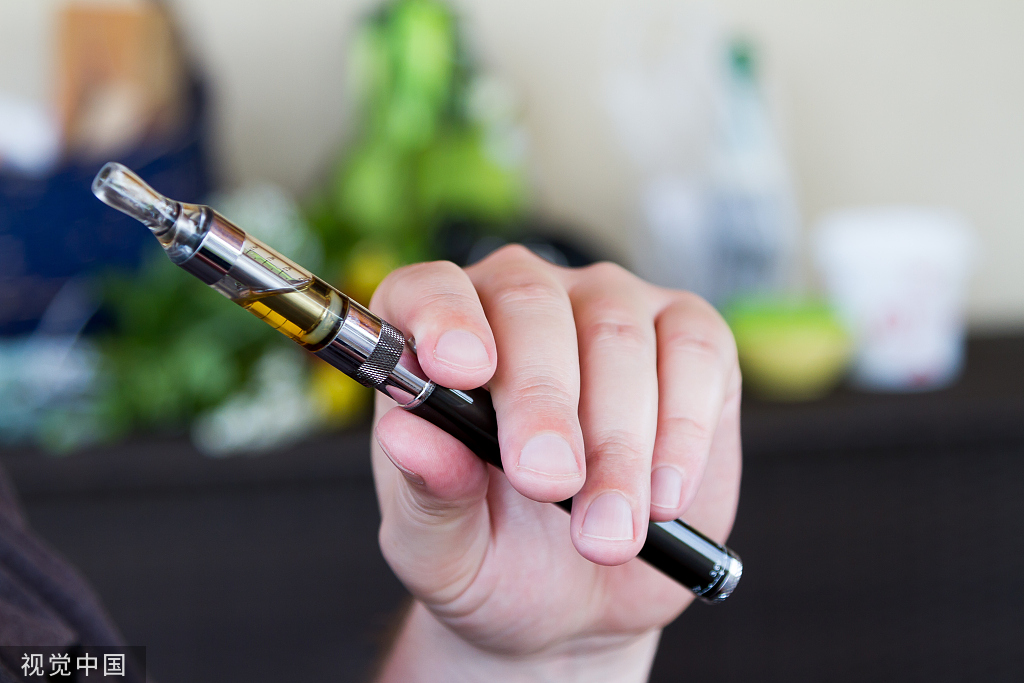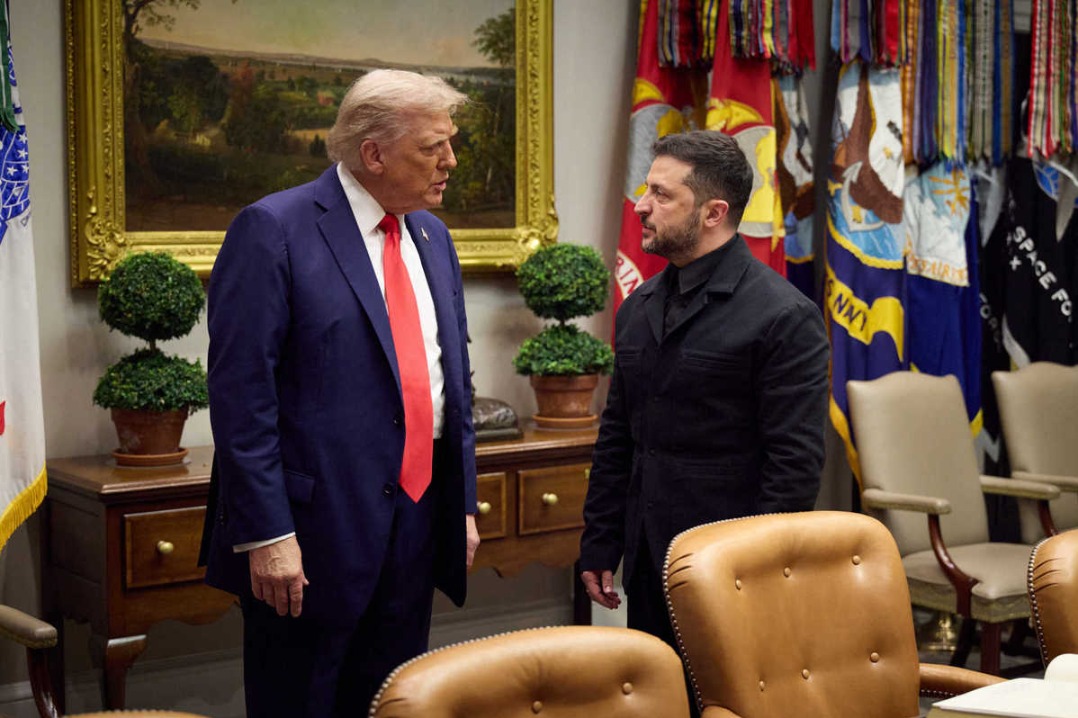Trump reportedly backs off e-cigarette sale ban


In September, Trump said he was considering a ban on the sale of most flavored e-cigarettes that appeal to teenagers.
But on a Nov 4 flight to attend a political rally in Kentucky, advisers warned Trump that major restrictions on sweet, fruit-flavored e-cigarettes would create a political backlash, according to reports Monday by The Wall Street Journal, The Washington Post and The New York Times.
A poll commissioned by one of Trump's campaign pollsters surveyed voters in key states and found many would react negatively to the sweeping ban then under consideration, the newspapers reported, and Trump backed off.
On Nov 11, Trump tweeted that he planned to meet with "representatives of the vaping industry, together with medical professionals and individual state representatives, to come up with an acceptable solution to the vaping and E-cigarette dilemma".
Initially, Trump was expected to raise the legal age for vaping to 21 from 18. "We have to take care of our kids, most importantly," he told reporters at the White House. "We're talking about flavors, we're talking about keeping people working. We're close to a final report."
Representative Raja Krishnamoorthi, Democrat of Illinois and chairman of the House Oversight and Reform Subcommittee on Economic and Consumer Policy, sent a letter Monday to the White House and the Food and Drug Administration (FDA) demanding to know the status of the promised vaping-flavor guidance.
"The strong promises made by the president and his administration to address the youth vaping epidemic were incredibly encouraging. Now, however, the delay in finalizing the Administration's compliance policy raises deep concerns," he wrote.
Last week, the Massachusetts House of Representatives voted 126-31 to prohibit the sale of flavored e-cigarettes and mentholated tobacco products. If the federal government doesn't impose a national ban, states may act individually.
The US Centers for Disease Control and Prevention (CDC) said there were 2,172 "confirmed and probable lung injury cases" and 42 deaths through Nov 13 related to e-cigarette use. The CDC reported vaping-related deaths in 24 states. California, Illinois and Indiana led the nation with four deaths each.
Initially, vaping was believed to be less hazardous than cigarettes because the flavor pod is heated and not burned. This precluded the toxins created by burning tobacco and the paper wrapping in cigarettes.
While the cause of the injuries and deaths isn't definitively known, the CDC said both appear to be related to THC-infused products and not tobacco or flavored vaping products. THC is the active ingredient in marijuana that gives users a "high" or "buzz".
Investigators believe vitamin E acetate, an oil used as a thickening agent in food, dietary supplements, skin creams and present in some vaping products may be the cause of the lung damage. But they caution that the evidence is tentative, and further research is needed.
THC-infused vaping products are typically obtained from friends or third parties and therefore their purity cannot be assured, the CDC warned.
































